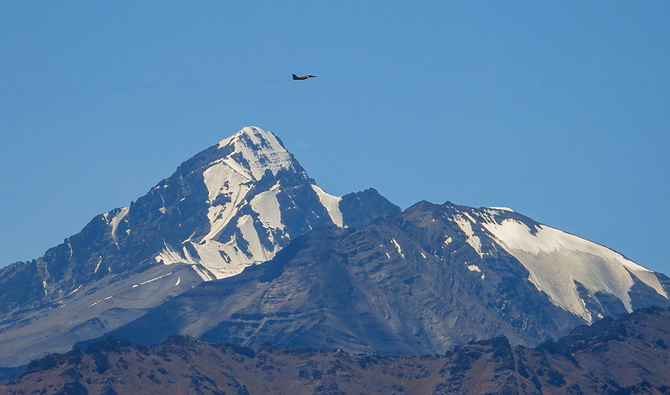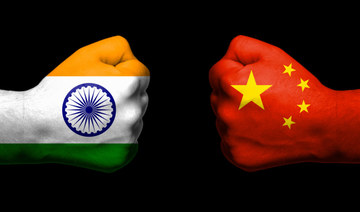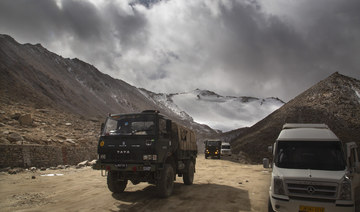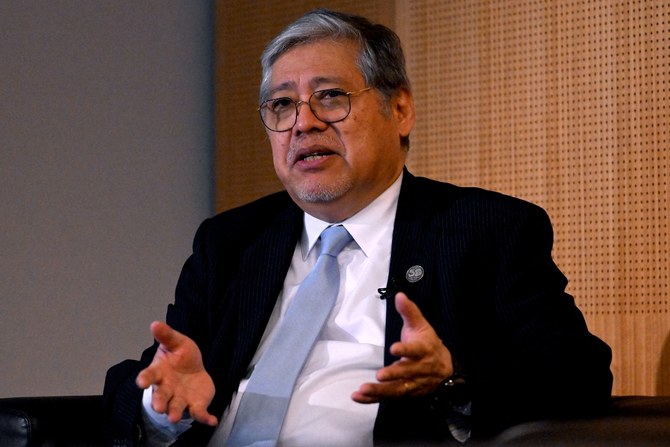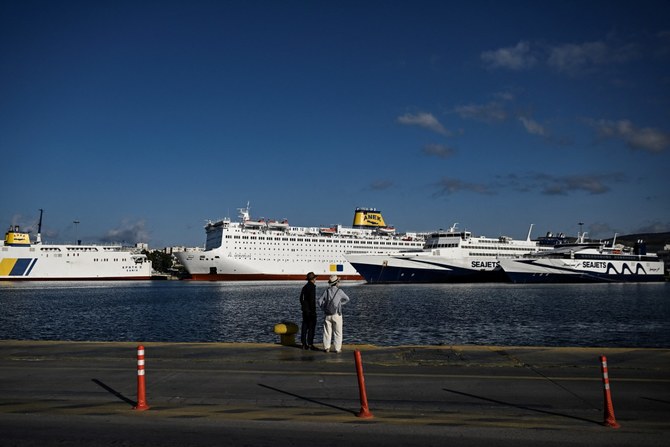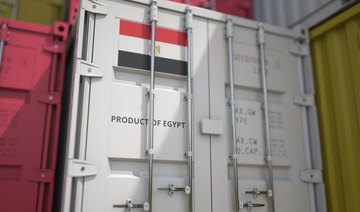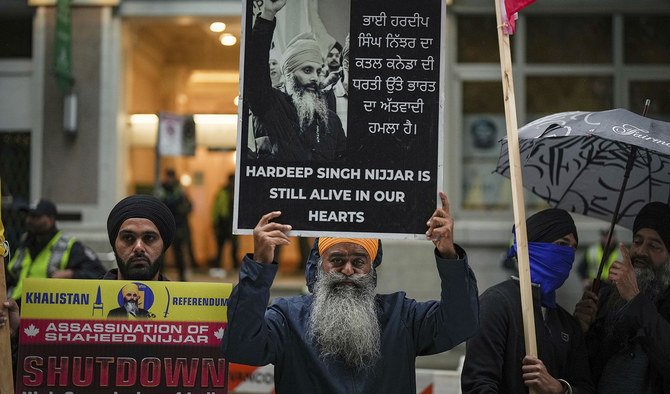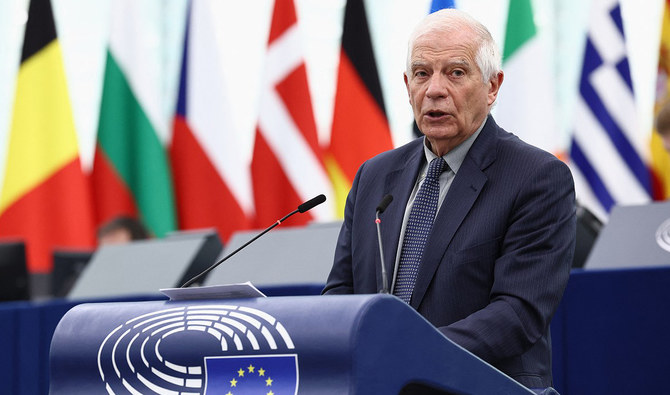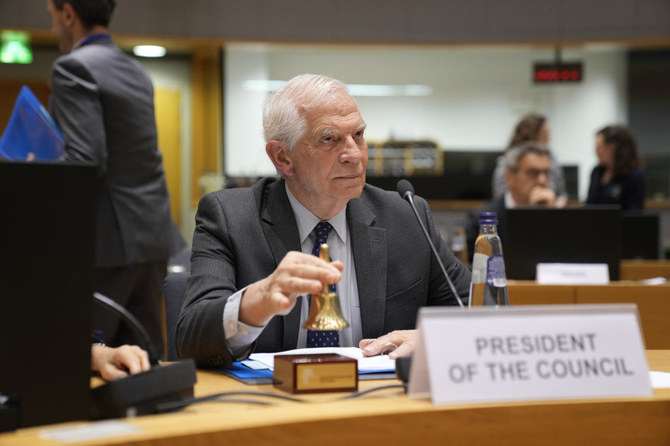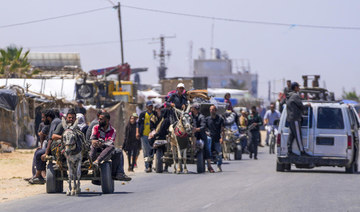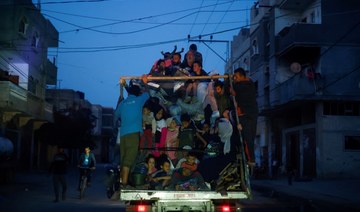NEW DELHI: Indian and Chinese military officials held talks for a third consecutive day on Wednesday in a bid to defuse new Himalayan border tensions.
A simmering decades-old territorial dispute re-erupted over the weekend when troops from both countries came face to face along a disputed mountain border in the region of Ladakh.
So far, there has been no official statement about the progress of discussions taking place in the village of Chushul on the Indian side of the Line of Actual Control (LAC), but media reports suggested that they had been “inconclusive.”
More than two months after a deadly clash between the two countries in Ladakh’s Galwan Valley on June 15 — the first in 45 years — when 20 Indian soldiers were killed and more than 70 injured, both sides once again came to the brink of a fresh confrontation along the Pangong Tso Lake in the region.
New Delhi has slammed Beijing for its “provocative” behavior. In a statement on Tuesday, the Indian foreign ministry said: “The Chinese engaged in provocative military maneuvers late in the night on Aug. 29 and 30 in an attempt to change the status quo in the south bank area of Pangong lake.”
It added that the “Indian side responded to these provocative actions and took appropriate defensive measures,” and that on Aug. 31, “even as the ground commanders of the two sides were in discussions to de-escalate the situation,” the Chinese troops again engaged in “provocative action.”
The ministry said: “Due to the timely defensive action, the Indian side was able to prevent these attempts to unilaterally alter the status quo.”
However, China accused India of “violating the consensus” and trespassing the LAC.
In a statement, also on Tuesday, Ji Rong, New Delhi-based Chinese embassy spokesperson, said: “On Aug. 31, Indian troops violated the consensus reached in previous multi-level engagements and negotiations between China and India, illegally trespassed the Line of Actual Control again at the southern bank of the Pangong Tso Lake and near the Reqin Pass in the western sector of the China-India border, and conducted flagrant provocations, which again stirred tension in the border areas.”
The tensions between the two countries began brewing again in early May when Indian troops blamed China’s military for hindering usual patrols along the LAC on the Ladakh and Sikkim border.
But Beijing accused its southern neighbor of building road infrastructure in the Fingers region around the Pangong Tso Lake and Galwan Valley in eastern Ladakh.
Amid the blame game, both sides began reinforcing troops, leading to a military buildup, before the deadly clash in Galwan Valley.
Since then, China and India have held several rounds of talks at political and military levels in an attempt to cool the situation.
Media reports suggest that China’s refusal to go back to its previous position at Pangong Tso Lake and Depsang has stalled the disengagement process along the border.
“The actions and behavior of the Chinese side since earlier this year along the LAC has been in clear violation of the bilateral agreements and protocols concluded between the two countries to ensure peace and tranquility on the border,” India’s foreign ministry said.
China, on the contrary, blamed India for “territorial violation.”
India had “seriously violated relevant agreements, protocols, and important consensus reached between the two countries, and severely damaged peace and tranquility along the China-India border areas,” Rong added.
Political experts, however, hoped the war of words would not lead to any further deterioration in relationships, adding that building trust was equally important.
“If the war of words deteriorates to war in actions, then, obviously, the side that is weak in action will be at a disadvantage. Let us hope it does not come to that,” Prof. Siddiq Wahid, a Srinagar-based international expert, told Arab News.
“The antidote to distrust is trust. But to trust, there must be a sincerity of intention,” he added.
Manoj Kewalramani, of Bangalore-based think-tank the Takshashila Institution, said the current situation would only serve to “deepen mistrust as the trust built over decades between the militaries has broken down.”
He added: “India pulling out of multilateral military drills involving China and Pakistan in Russia later this month reflects this. Political trust has been fragile, and the current situation only puts further strain on this.”
Wahid pointed out that a lack of transparency in both regimes was the reason for the current impasse.
“India and China have become steadily authoritarian governments and opaque about their decision-making processes. Second, it is difficult to form an independent opinion given the lack of accurate information from the battlefront. Third, it is well-known that Chinese media is synonymous with state media; this can, increasingly, be said about Indian media too,” he said.
He added that Indian Prime Minister Narendra Modi’s “domestic political compulsion” was also getting in the way of resolving the issue.
“To divert people’s attention from its utter economic and military failure, some empty saber-rattling is always helpful. The BJP (India’s ruling Bharatiya Junata Party) is facing elections in Bihar (Indian state) in October. Even the most cursory recollection of this BJP government’s tactics will demonstrate that its modus operandi before an election has been to shout about the threat to India’s security,” Wahid said.
Kewalramani noted that if the conflict became prolonged it could have a “great geopolitical impact.”
He added: “The longer it goes or if it escalates further, the more China will alienate India. Geopolitically, India is likely to pursue greater external balancing if it finds that Beijing is unwilling to maintain tranquility at the border.”



